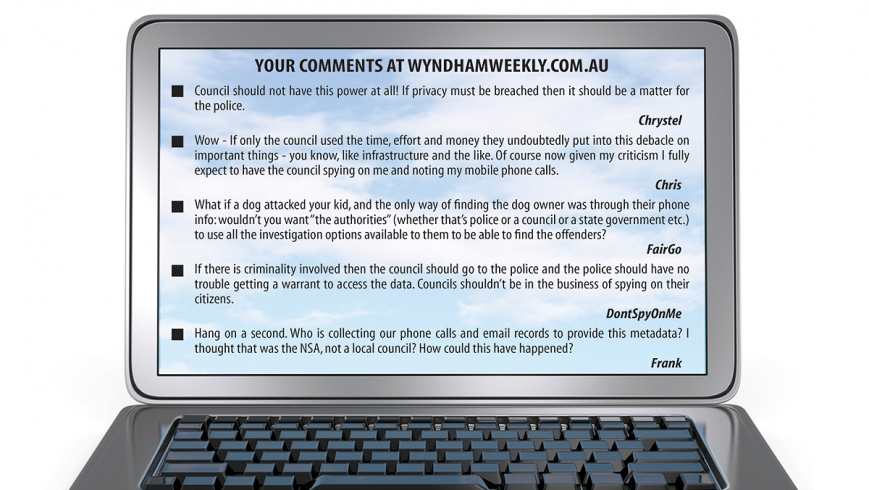WYNDHAM council is committing an “unacceptable breach of privacy”, according to federal MPs fighting for greater restrictions against snooping on personal mobile phone use.
The Greens, who have introduced a federal Senate bill that would require a warrant before any agency seized phone data, say the fact Wyndham council has exercised these invasive powers proves current laws are inadequate.
As reported by the Weekly, the council seized information from residents’ phones without a warrant almost 50 times in the past three years in order to pursue people for unauthorised advertising, unregistered pets and illegal littering.
SNOOPING ANGER: Experts slam Wyndham council’s data snooping
Wyndham is the only Victorian council that has been spying on “metadata”, which includes users’ names, addresses and lists of their calls, text messages and emails. It also includes users’ locations at the time of transmissions but does not include text content or sound recordings.
Defending the controversial practice, council’s acting chief executive, Kelly Grigsby, singled out an investigation into the owner of a dog that mauled an elderly man in July last year. The female owner of the dog had called paramedics before fleeing.
“Wyndham City contacted Ambulance Victoria, requesting her phone number,’’ Ms Grigsby said.
‘‘Wyndham City made numerous attempts to contact the dog’s owner including requests that she come in and discuss the matter. On each occasion she was evasive and unco-operative.
“As a last resort, Wyndham City sought authorisation under the Telecommunications Intercepts and Access Act to determine her name and address and she was eventually prosecuted in court.”
Greens telecommunications spokesman Scott Ludlam said agencies can access people’s metadata by “simply filling in a very basic form without requiring any judicial oversight”.
“The Greens bill would require such agencies to instead apply for a normal warrant for such activities,” Senator Ludlam said.
Ms Grigsby said the council registered as an enforcement agency with the federal Attorney-General’s Department in 2010 after becoming aware it could seek authorisation to access metadata.
She said two council officers, who are not involved in investigations, are permitted to authorise metadata access, weighing up each request against the requirements of the law.







